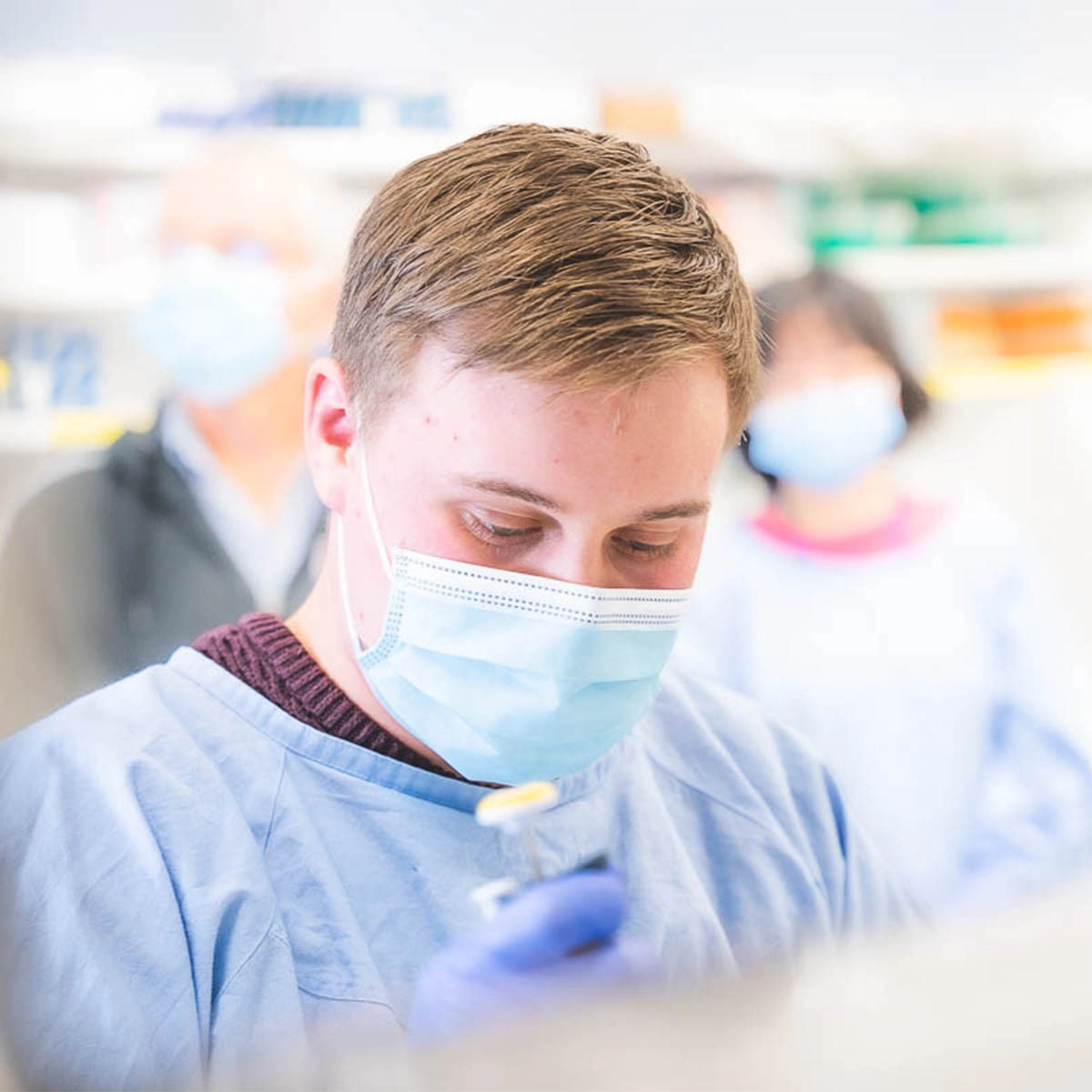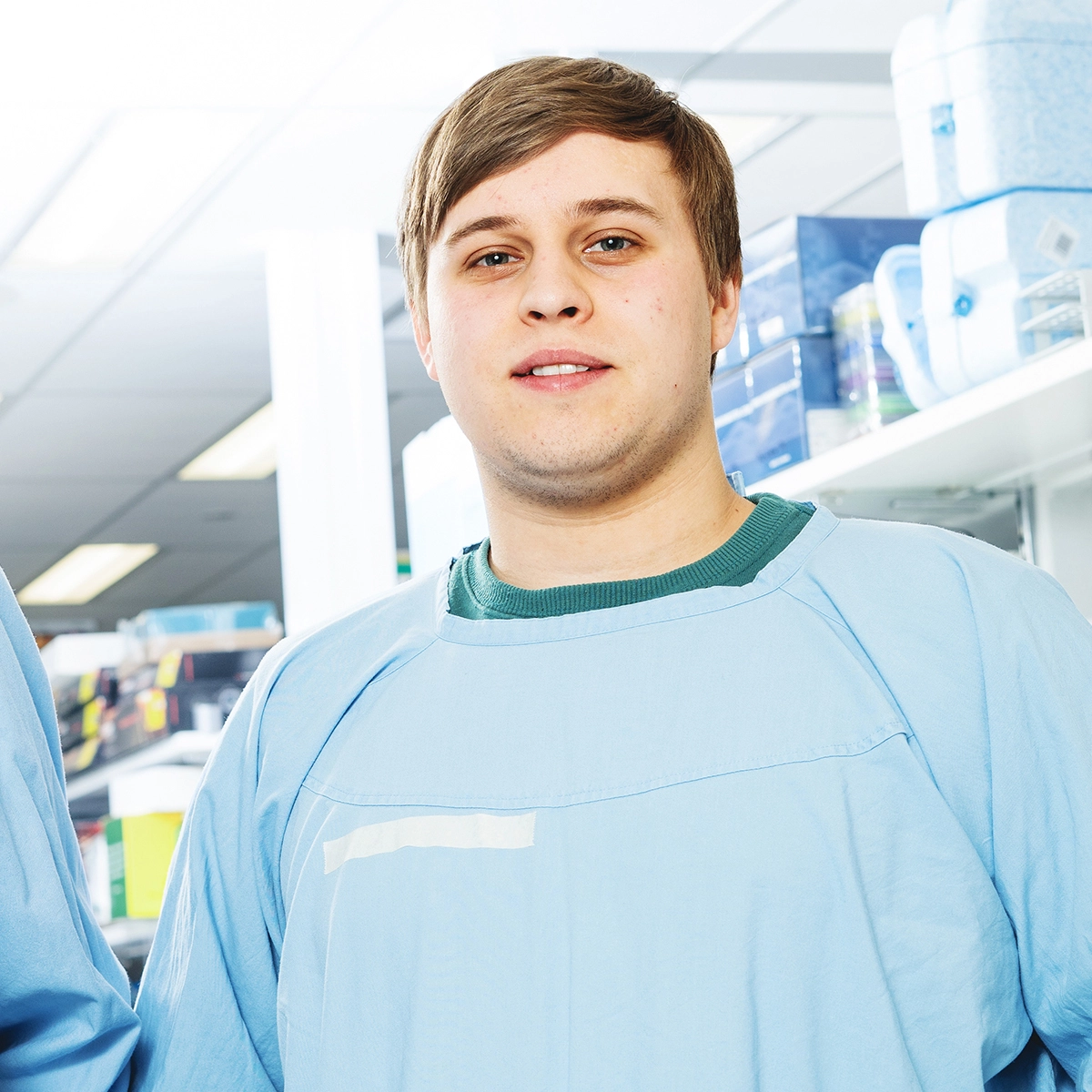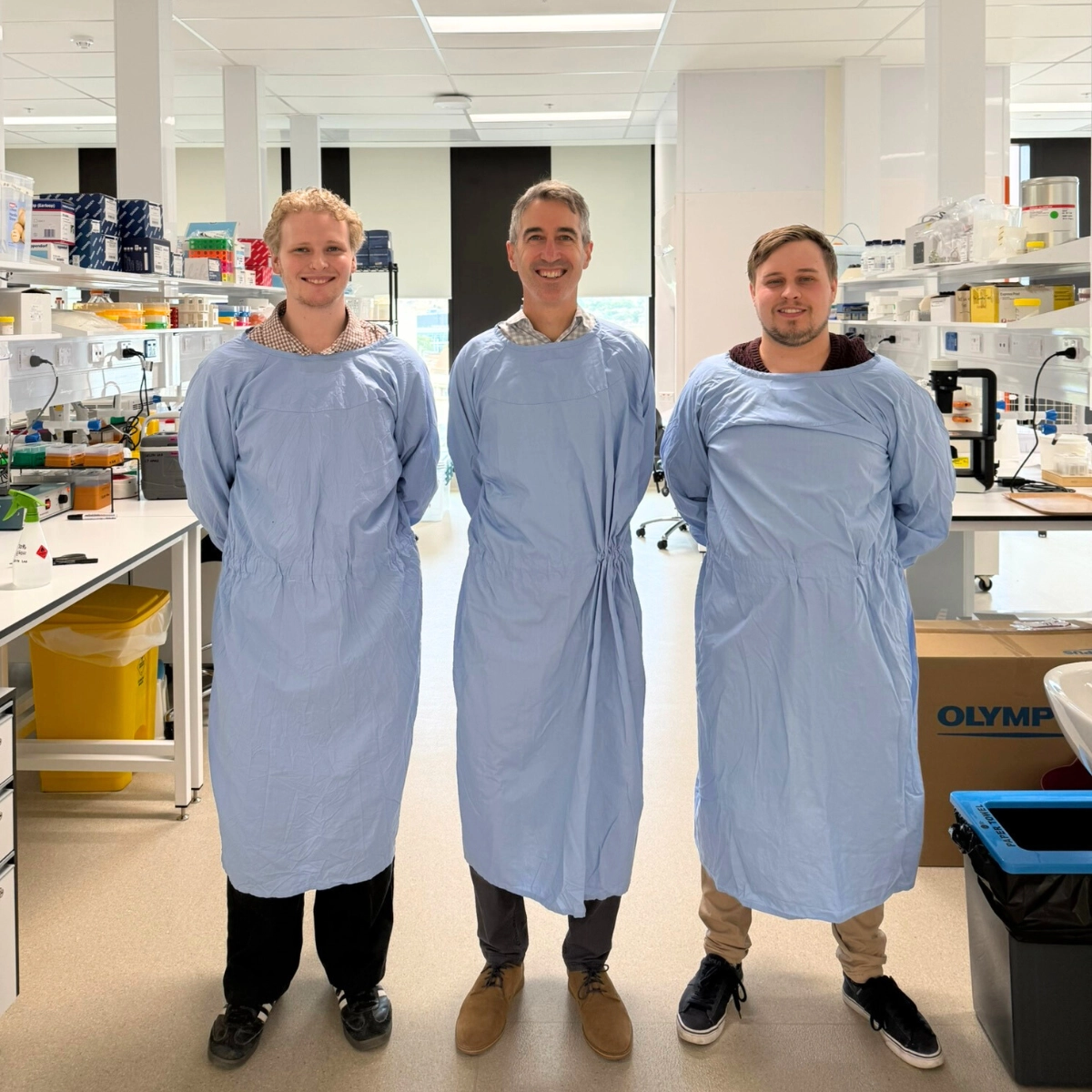Creating a lasting legacy in prostate cancer research
Ralph Ernst was diagnosed with bladder cancer in 1988 while caravanning around Australia with his wife Pixie and was operated on and cared for by the urology service at Flinders Medical Centre.
All these years later, up until his passing in 2020, Ralph remained indebted to Flinders for the care he received. From his home in far-north Queensland, he was passionate about supporting men with similar cancers, including prostate cancer.
He then left a generous gift to Flinders Foundation that will support research into men’s cancers for many years to come.
Back in 2021, the inaugural Ralph Ernst PhD Scholarship in Prostate Cancer Research was awarded to Sam Rollin.
Sam joined Flinders University’s Prostate Cancer Research Group, headed up by Professor Luke Selth. This team is focused on understanding how prostate cancer becomes resistant to hormone therapies, which are the primary treatment option for men with metastatic prostate cancer which has spread beyond the prostate.
We recently caught up with Sam for an update on the research project, his experiences, and how Ralph Ernst’s generous gift has had a profound impact on advancements in research on prostate cancer.
Q: What inspired you to begin this research project?
As a scientist, I’ve always been interested by cancer, because it’s not like other diseases, like when you get a virus or a bacteria. A cancer is your own cells turning against you, and that’s always really fascinated me at a biological level.
But on a personal level, both of my parents lost one of their parents to the disease, and all my life I’ve been surrounded by people who have been impacted by cancer. I’ve always wanted to do something in my research that makes a difference, and this research project was an amazing opportunity to make a real difference to people impacted by cancer.
Q: How would you describe the project in simple terms?
The traditional hormonal therapies are not curative and can cause significant side-effects, so patients desperately need new treatment options. Our research has been investigating a new type of hormonal therapy, called bipolar androgen therapy, which is associated with better quality of life for patients.
Additionally, there’s been some evidence that bipolar androgen therapy can alter the immune system in a way that sensitises prostate cancer cells to immunotherapy, which has been the focus of my research. This could be a game-changer for patients because immunotherapies have been revolutionary in other cancer types but has been largely unsuccessful in prostate cancer, despite many clinical trials.
Q: What’s the most significant change you hope this research will bring to patients?
Our goal, which is admittedly ambitious, is to cure patients with metastatic prostate cancer. We think that bipolar androgen therapy, potentially in combination with immunotherapy, could be a strategy to achieve this.
We’re also focused on not just treating the cancer, but also treating the person. It’s important to deliver treatment that doesn’t make people so unwell and impact other areas of their life, and we believe that bipolar androgen therapy may be a way to do this.
Q: What has been the most exciting discovery or development in your research so far?
I’m currently writing up my PhD thesis, which is the scientific overview of all the data and information that we’ve gathered, looking at what our discoveries are, what the impacts may be, and what important developments could come out of this in the future.
The most exciting discovery I’ve made is that treating prostate cancer with bipolar androgen therapy promotes a general immune response, which makes the cancer cells more visible to the immune system. This suggests that pairing this new hormonal therapy with an immunotherapy could be a very effective treatment strategy.
This work is ongoing but our findings to date represent an important step towards improving patient outcomes.

Q: How has receiving this scholarship impacted your ability to carry out this research?
Ralph and Pixie’s generosity in funding this scholarship has been just incredible. It’s allowing me to do what I’ve always wanted to do – to play my part researching this devastating disease so we can improve outcomes for patients facing the poorest prognoses.
I feel extremely grateful to both Ralph and Pixie Ernst for donating the funds that have made my research possible, and to the Flinders Foundation for facilitating this fantastic opportunity.
Hearing patients’ stories and perspectives brings it back to why we’re doing this research, because sometimes we can get really wrapped up in the biology of it all, but there is a very human reason for why we’re doing this.
Attending some of the Flinders Foundation events and running some of the lab tours where we’ve had patients come and look around have been really positive experiences for me. I look forward to progressing our research in this important area.
Leaving a lasting legacy
The legacy of Ralph Ernst continues as Professor Luke Selth announced the newest recipient of the PhD scholarship, Travis Croft. Travis will continue some of the research started by Sam, with the goal of developing new therapeutic approaches to treat men with advanced prostate cancer.
Keep up to date
Subscribe to our newsletter to receive information on our latest news and events










